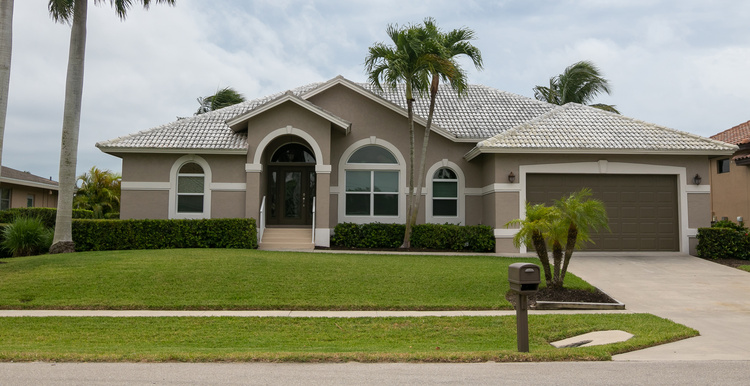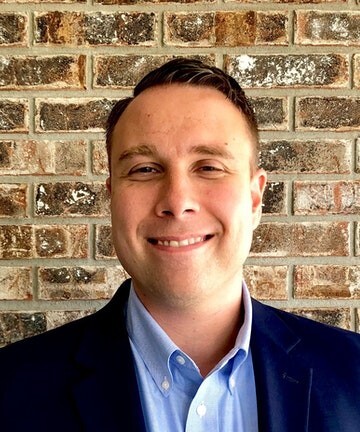
Florida currently has the highest property insurance rates in the nation - although that likely comes as no surprise.
In 2018, property insurance rates started going up at a rate of about 10-20%, and it has just skyrocketed from there. Many property owners have seen their rates double in that time span. And while Florida has always been a volatile insurance state, there is more to it than just the normal cyclical changes. So what's going on, and what's being done about it?
Typical Insurance Market Cycles
Typically, every 10-20 years or so, the insurance market ebbs and flows from a "soft market" to a "hard market" and back to a soft market again. In a "soft" market, there's more competition, and you benefit with lower rates. Insurers are generally less concerned about risk and more focused on growth. The good times don't last, however, and eventually a hard market moves in. This happens as the insurers' moods shift due to an increase in claims and rising expenses, such as reinsurance and labor costs. It results in fewer insurers at play, and so rates rise. Eventually, expenses get in line, and the focus shifts back to growth again, repeating the cycle.
If you couldn't tell, we are currently at the peak of a hard market. But what's happening with Florida's insurance rates over these past 5 years is much more than just the typical hard market. The following items are also at play, resulting in the runaway insurance rates you've been experiencing:
One-way Attorney Fees
Until very recently, insurance companies were required to pay the property owners' legal fees if they were successfully sued. This rule was originally put into place to protect people from "bad faith" insurers, but as a result, lawsuits have become rampant, with a huge increase in frivolous suits that insurers are forced to defend, with many deciding to settle, even if there was no damage. The original intention of one-way attorney fees was noble, but it has become exploited by a small number of attorneys who learned they could game the system. A well documented statistic states that in 2019, Florida had 8% of the nation's property insurance claims, but account for 78% of all property insurance litigation. That's not an anomaly; it's the direct result of one-way attorney fees. The result? Insurers have no choice but to raise their rates.
Assignment of Benefits
Have you ever had a roofer or general contractor approach you after a storm and offer to work with your insurance company to have your roof or home damages repaired? Until recently, it was possible for any contractor to ask a property owner to sign over the rights of a claim to them, a practice known as "Assignment of Benefits". From the homeowner's perspective, it seemed easier to just let the contractor handle the claim from start to finish and still get their new roof for "free" (after whatever deductible they've agreed to on their insurance plan). However, the problem arises when some of these contractors were less than ethical in their practices, providing over-inflated project estimates and invoices to the insurance company to pay, then keeping the overage for themselves. When the insurers balk at their estimates, the contractor threatens to sue, knowing the one-way attorney fee rules are on their side. This slows down the claim process, and results in frustration for the property owner, as well as confusion among the owner, contractor, insurance company, and agent. The end result is that many insurers overpaid for claims and the insureds didn't even get to benefit from it. This was yet another catalyst for insurance rates to increase over time.
The Evolution of Digital Marketing
Many law firms, public adjustors, and contractors have utilized digital marketing tactics to connect with potential customers at scale. They have been successful at targeting people who have property damage, or suspect they might have damage, and prompting them to file a claim. While this isn't illegal, it has caused a surge in claim activity that wasn't initially factored into the actuarial rates that were set by the insurers. Factor in One-Way Attorney Fees & Assignment of Benefits abuses, and many attorneys and contractors have found a windfall of customers and profits at the expense of insurance companies. Sadly, some insurers are targeted precisely because they are "healthy" and have the deepest pockets.
I personally worked with St. Johns Insurance Company for over 15 years and had known them to be a well run company. In 2016, they faced 180 lawsuits, and that number surged to 3,508 in 2020. It was too much for them to handle and were forced to shut down operations in 2022. It's a similar story for United Property & Casualty Insurance Company. In fact, 14 Florida insurance companies have become insolvent in the past 2 years, with most others scaling back their operations and desire to write new policies.
The result? A surge in claim activity that was initiated at scale through digital marketing; that may or may not have occurred otherwise, but that certainly wasn't accounted for with the insurers' requested and approved rates.
For more about this interesting trend and its impact on the insurance industry, check out this article from Insurance Journal.
High Rise Collapse Risk
The June 2021 Surfside Condominium collapse, killing nearly 100 people, made insurers extremely nervous about insuring high rise buildings in Florida, and some raised rates even further for these property owners, while others left the condo market altogether. Those that stayed have further raised their rates to help mitigate risk. This was yet another reason for insurers to "pause" when thinking about their operations in Florida.
Summary of the Florida Insurance Crisis
To summarize, we see normal cycles of hard and soft markets. We are currently at the peak of a hard market, characterized by high rates and less coverage. In addition to these normal cyclical forces, Florida's insurance market has become de-stabilized due to one-way attorney fees, assignment of benefits, and the evolution of digital marketing. Add to the mix the terrible Surfside disaster, and the Florida insurance market is in complete shambles.
So enough of the doomsday talk. What's the GOOD news?
The Good News
In December of 2022, a Special Florida Legislative Session aimed at calming property insurance rate hikes was called by Governor DeSantis. The result? The law did away with the one-way attorney fees and full assignment of benefits approaches. These two reforms have immediately caused a decrease in new litigations against insurance companies. There will be a long tail of prior litigation still at play, that may still upend certain insurers, but this should encourage new insurers to enter the Florida marketplace again. Over time, this will help increase competition and innovation, and benefit you with lower rates and a better insurance experience. The special session also called for more stringent inspections for high rise communities, which should ease insurer's concerns about unpredictable building collapses.
Overall Outlook
Overall, as a result of these changes, things are going to get better, but not immediately. Florida Insurance Commissioner Mike Yaworsky (appointed this past December) explains why in a recent Tampa Bay Times article. In short, the new laws have to work their way through the system, while all the prior litigation resolves itself over time. And as these changes slowly shift Florida's insurance market, new insurers will consider coming back to Florida, increasing competition and lowering rates.
It may take anywhere between 1 and 5 years for these effects to be fully realized, but the market will stabilize, eventually. There will come a day when you will receive your renewal packet in the mail, and the premium will actually decrease from the previous year! It happened during the last soft market of 2009-2015 and it will happen again.
So hang in there! And if you're a Wren Insurance Agency client, thank you for hanging in there with us! In the mean time, if you have any questions about this information or would like an insurance quote, please contact us!

Kirk Ball is the Principal Agent and Owner of Wren Insurance Agency.
